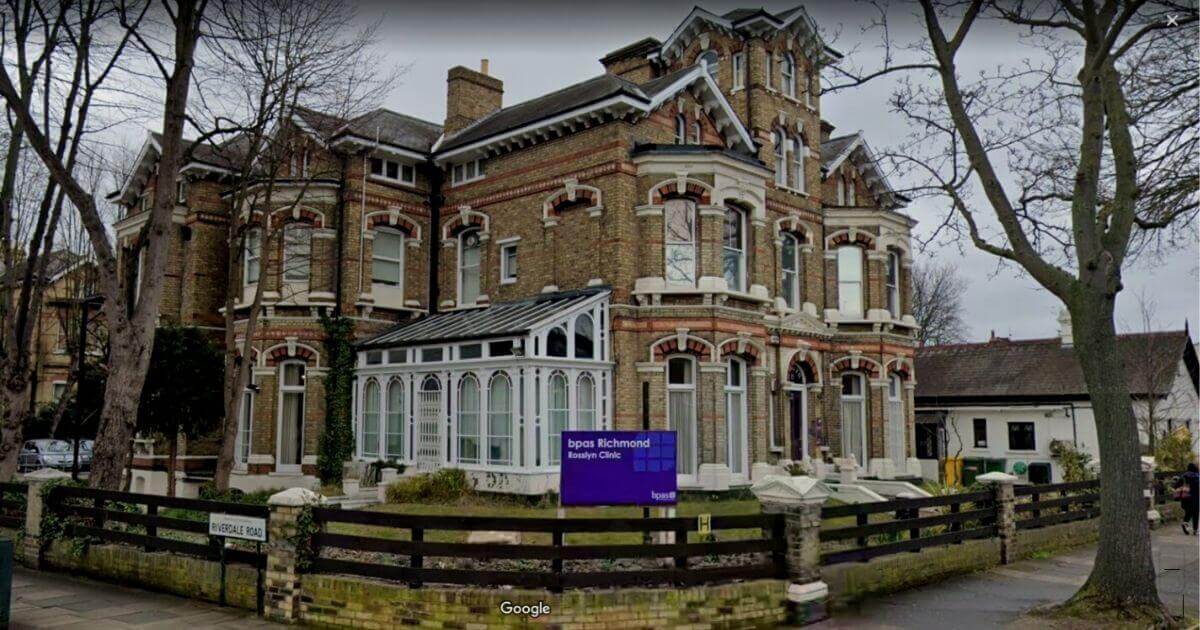PRESS RELEASE – FOR IMMEDIATE RELEASE
Woman launches landmark abortion case after not being told baby may feel pain at 23 weeks’ gestation despite growing evidence
A woman is taking the National Institute for Health and Care Excellence (NICE) to court after the abortion provider failed to inform her that a baby at 23 weeks’ gestation may feel pain and that her baby had a chance of surviving outside the womb.
This is despite growing evidence that an unborn baby may feel pain at this period of gestation and that increasing numbers of babies are now surviving after a premature birth at this same gestation.
Anna-Maria Tudor, 32, had an abortion at the British Pregnancy Advisory Service (BPAS) clinic in Richmond, London and has outlined that she was never informed that her unborn baby might suffer during the abortion procedure. She deeply regrets having the abortion after learning that her unborn child may have felt pain while being aborted.
Ms Tudor has taken NICE to the High Court and is seeking a declaration that current NICE guidelines, which do not require women to be informed that an unborn child might suffer pain during an abortion, are unlawful.
Current guidance for abortions providers relies on a 2010 review by the Royal College of Obstetricians and Gynaecologists (RCOG) into fetal awareness. In the review the RCOG claims that the unborn baby is in an unconscious state and does not reach consciousness until birth. They have been criticised for this conclusion being based on the evidence from only one paper from 1986, an experiment on sheep foetuses exposed to low oxygen levels.
But two medical researchers, including a ‘pro-choice’ British pain expert who used to think there was no chance unborn babies could feel pain before 24-weeks, say recent studies strongly suggest the assumption is incorrect. In an article, published in the influential Journal of Medical Ethics, the researchers say there is now “good evidence” that the brain and nervous system, which start developing at 12 weeks’ gestation, are sufficient enough for the baby to feel pain. They argue that women considering an abortion at this stage of pregnancy should be told about the pain their unborn baby could experience while being terminated.
Currently, the use of pain relief during an abortion in the UK is not required by law or suggested in official guidelines. This in itself is contradicted by the standard NHS practice of giving painkillers to unborn babies receiving surgery in the womb for spina bifida.
A report recently launched by the All-Party Pro-Life Parliament Group collated evidence on foetal sentience and pain to present to Parliament. Foetal Sentience & Pain: An evidence review, is highly critical of the current RCOG guidelines which permit abortion without analgesia at any gestation, concluding that “The Review has highlighted significant areas of scientific, clinical and philosophical concern, and changes in clinical practice, which should lead the RCOG to review its 2010 guidance.” This report recognises that between 12 and 24 weeks gestation, “There are differing views on which part of the brain controls pain sensations, when foetal pain starts and whether analgesia should be used in the second trimester”, before going to present further evidence to suggest pain may be felt during this period.
The survival rate for extremely premature babies has doubled over the past decade, prompting new guidance allowing doctors to try to save babies born as early as 22 weeks into a pregnancy.
Mrs Tudor from Newcastle told the Mail on Sunday:
“I did not find out a baby at 23 weeks might be able to feel pain until afterwards. It made me feel awful and I now deeply regret my decision. Women should be able to decide what they want to do, but they must be told the truth of what is involved.
Her solicitor, Paul Conrathe of Sinclairslaw, told the Mail on Sunday:
‘The failure to provide this information to my client meant she went ahead and aborted her baby at 23 weeks, a decision she profoundly regrets.’
A spokesperson for Right to Life UK Catherine Robinson said:
“17,913 women in the UK underwent an abortion at 13 weeks or later, in 2018, without any guidance mandating the use of pain relief for the unborn baby at any age. Yet, babies undergoing correctional surgery in the womb for Spina Bifida, from 20 weeks gestation, will experience minimal pain as they’ll be administered pain relief.
“Why is there this discrepancy? Perhaps it is because the provision of painkillers to a baby that is about to have their life ended would help bring home the reality of abortion. To recognise their pain would have a deeply humanising effect on unborn babies, which is something that abortion supporters are keen to avoid. It would acknowledge that there is another human being who is being denied their right to life, while they are at their weakest and most vulnerable.”
ENDS
- For additional quotes and media interviews email press@righttolife.org.uk
- For further information on Right To Life UK visit www.righttolife.org.uk
- Further details on the law change are available at www.righttolife.org.uk/repeal
- Foetal Sentience and Pain: An evidence – https://www.fionabruce.org.uk/sites/www.fionabruce.org.uk/files/2020-03/2020-pro-life-appg-report-on-foetal-pain.pdf
- Further details on the APPG inquiry are available here – https://righttolife.org.uk/news/mp-appg-inquiry-pain/


